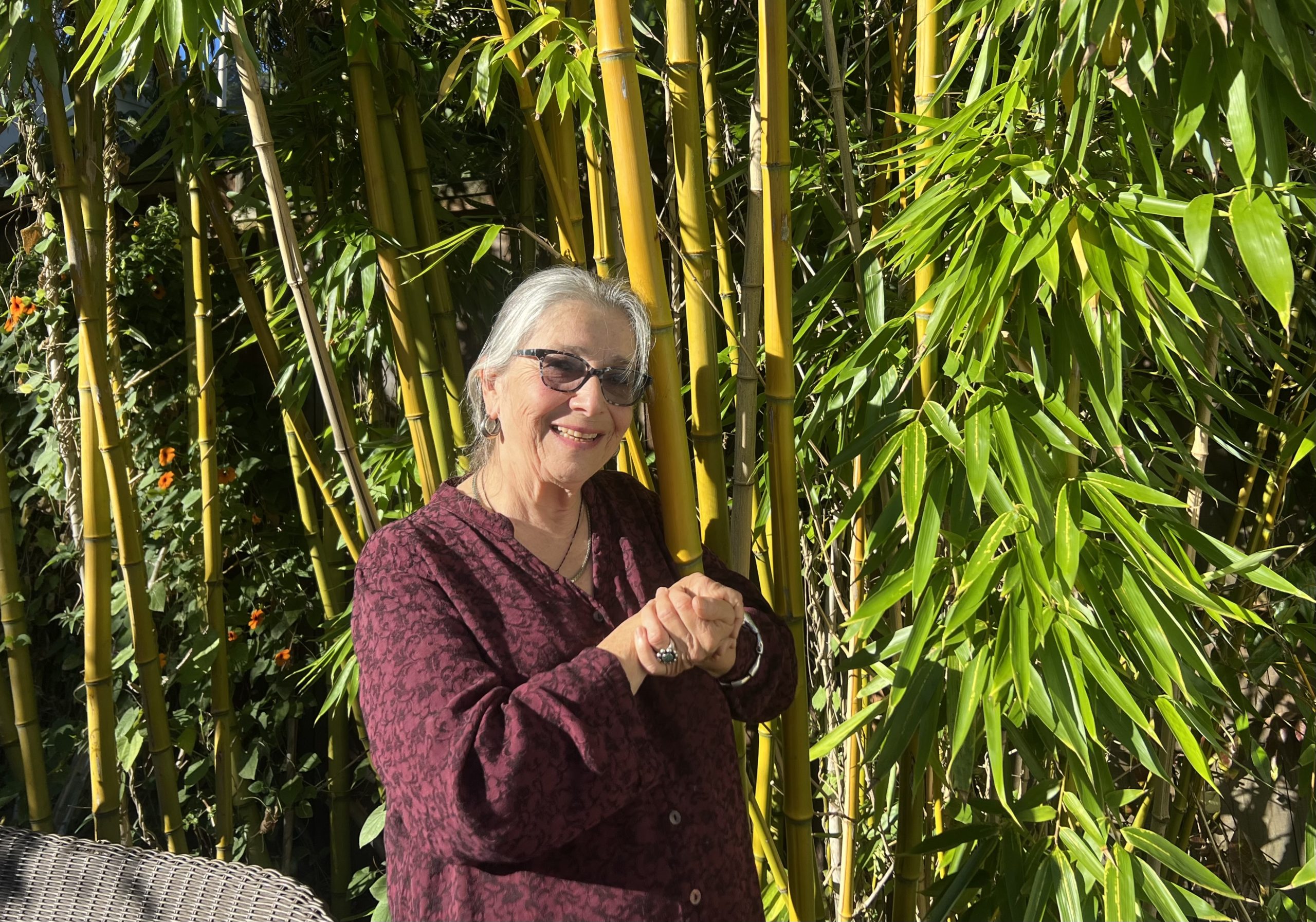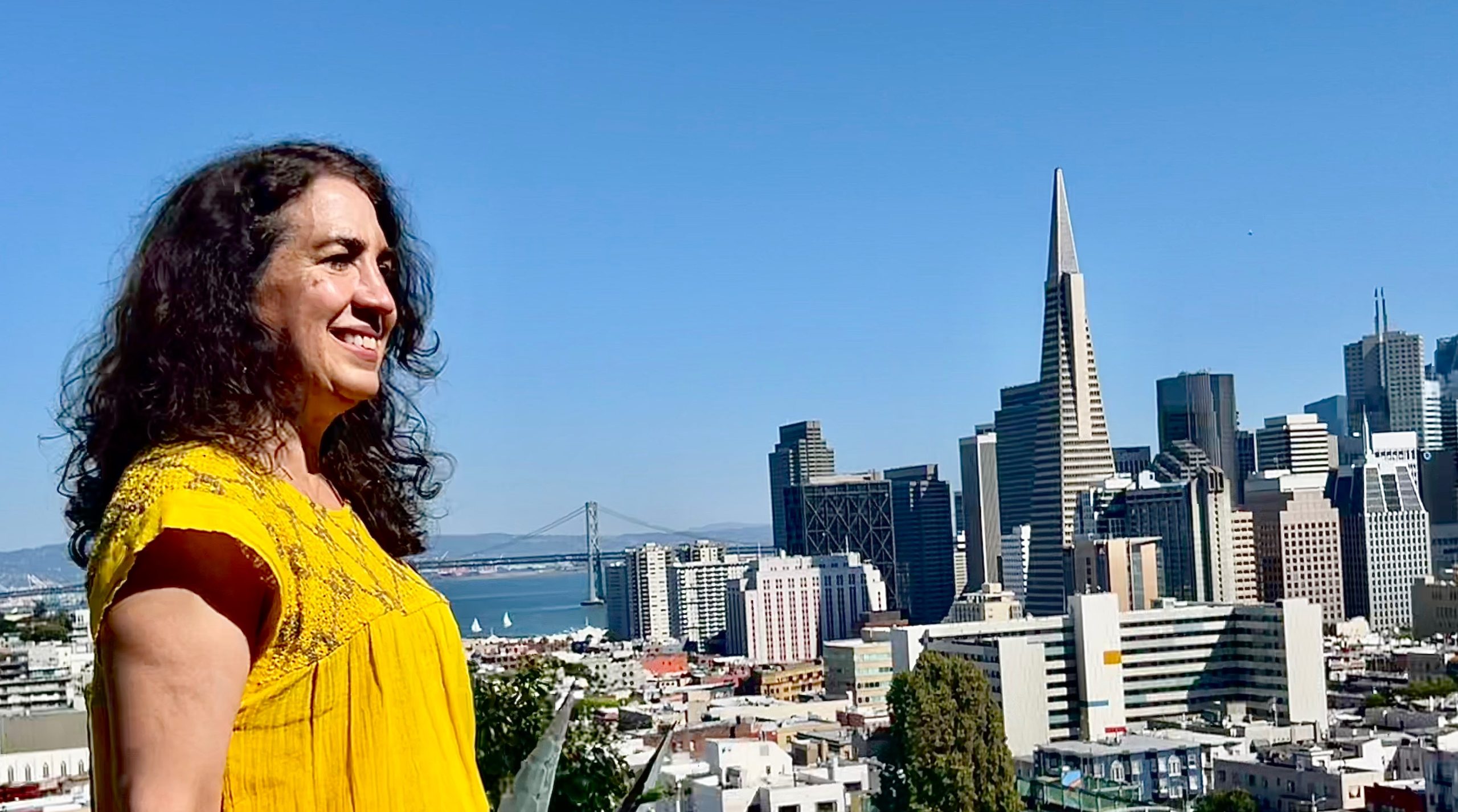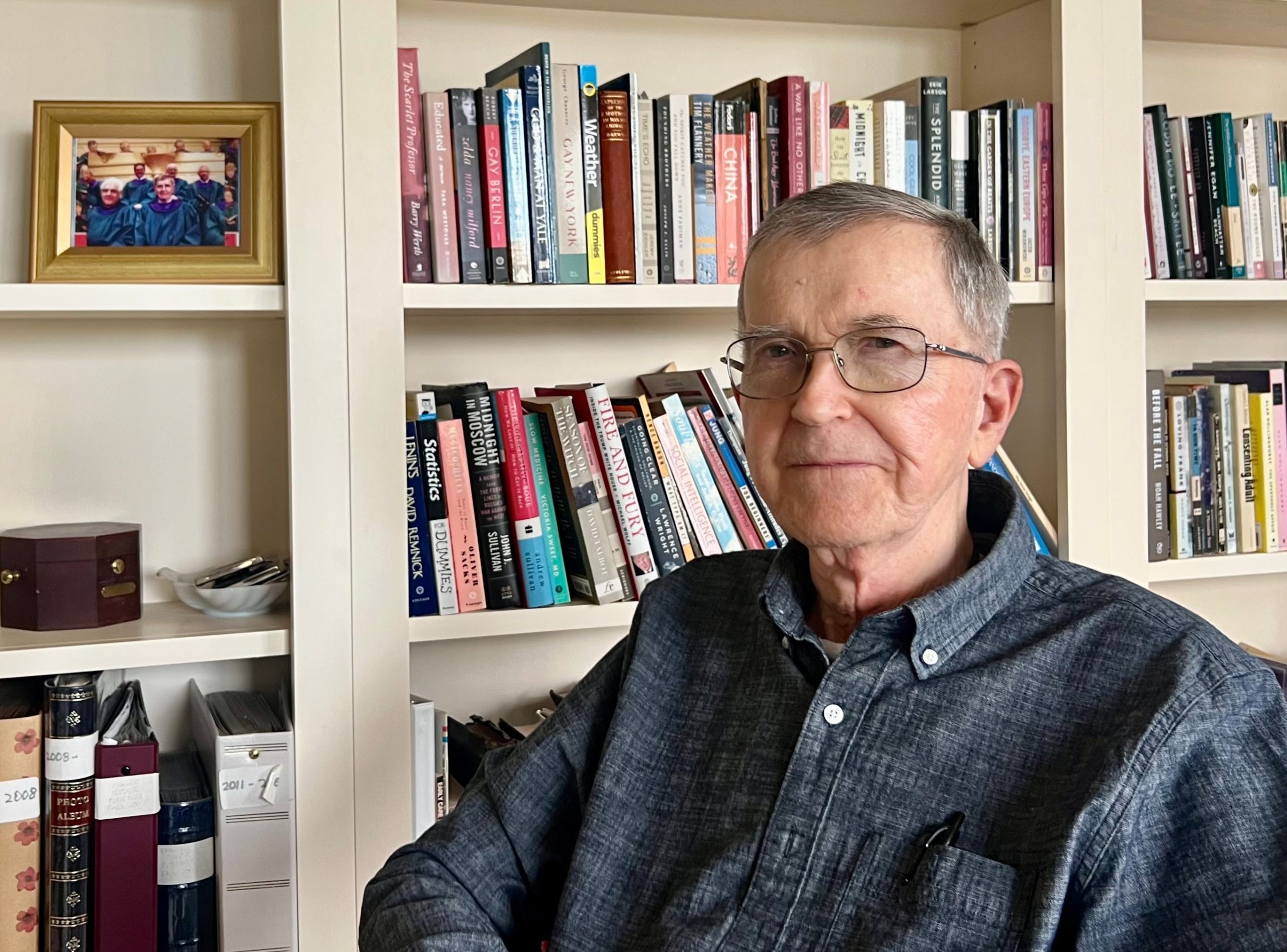Feistiness and array of support services keep senior active and independent despite damages of diabetes
Diabetes has ruled Marlene Hunn’s life since she was diagnosed at age two. But not wanting to become isolated or housebound, she has made a point of getting support from her friends – and the wide range of services available to her in San Francisco.
She may have her bad days and crying jags, but she’s best described as feisty. “I’ve got an active mind, and I’m engaged with life,” said Hunn. “I’m still taking classes. I’m independent.”
Not much was known about the disease in Hunn’s youth. Daily insulin injections kept it under control. But it eventually left the now-71-year-old blind. It also forced the removal of a leg, some toes and a finger. “I take dozens of medications, it takes me two hours every morning to put on my leg, and I’m dependent on help from so many agencies,” she said.
She gets around with a walker, crutches and a wheelchair. But she needs help with meals, with shopping, doing laundry, cleaning and, throwing out the garbage.

But it’s not all work and no play. She takes classes at the Fromm Institute for Lifelong Learning, learned to use a computer at the Lighthouse for the Blind, gets audio books from the San Francisco Public Library’s Talking Books and Braille Center and breakfast and dinner from Meals on Wheels. She has found additional companions and friends through the Shanti Project, a nonprofit helping people with terminal, life-threatening or disabling illnesses or conditions, and Social Calls, a program of Covia, a nonprofit supporting the aging.
Being her own advocate
At home, Hunn enjoys visitors, talking with friends, using her computer, and listening to the television and audio books. Jane Glasby is her go-to person at the Talking Books and Braille Center. “When I want to read something, I just call Jane. I can give her one word from a title and she can find the audio book and send it to me.
“There are so many books, I haven’t read. I wish I had read all the books the nuns told us to.”
She has family back in the Midwest and out here.
Still, getting what she needs takes a lot of self-advocacy. Caseworkers from the city, federal government and Catholic Charities are also frequent visitors. Unfortunately, not everyone who is supposed to help her come through.
“I have to be my own advocate, so I start yelling. It takes a lot of energy and it doesn’t always work,” she said pointing to a useless and expensive wheelchair she received from the government. “Illness forced me to grow up fast.
Hunn grew up in Cleveland, Ohio. After completing school, she took a job as a nurse. She followed a boyfriend to the Bay Area – “sex, drugs, and rock and roll,” she said with a grin – where she held several nursing jobs.
It was in her adulthood that diabetes began to wreak havoc. “The problem with diabetes is it never hurts,” she said. “I never had pain.”
But she eventually lost a leg, toes and finger and eyesight. She got a new kidney and pancreas “when transplants were new.” She also had breast cancer. “Nobody thinks this would ever happen,” Hunn said. “Until you’ve walked in my moccasin, you really can’t appreciate what my life is like.”
It helps that she’s not only feisty, but friendly and interested in learning about other people’s experiences. He friends are “very dear” to her; they keep her going, she said. But some of them have their own ailments and aren’t always available.
The benefit of extra friends
It was on the advice of a driver from Meals on Wheels that she reached out to Covia Social Calls. It matches volunteers with participants for one-on-one visits in San Francisco, Alameda, Marin, and Sonoma counties. It has arranged 28 matches in San Francisco, said program supervisor Brian Stannard.
Three years ago, Hunn was paired with Yvette Connolly, 52, an administrative assistant at a mutual fund. “Marlene has an active mind; her body just doesn’t cooperate. We got matched because we both like books, and because I’m available when she is,” she said.
She visits Hunn every other week for several hours, and calls between visits. “We talk about books; I’m in two book clubs so I read a lot. I read her mail to her, address envelopes, throw out the trash – she’s fanatic about separating the garbage.”
Connolly started volunteering at Covia seven years ago because, she said, “children and animals get all the attention – the elderly and disabled are a neglected community,” and added, “It’s good to get the experience of someone who’s completely different from you.”
The Shanti Project connected her with someone after her breast surgery.
“He’s left the city, but we talk every week. He and his wife even took me out. It’s a real effort to take me out, but they did it,” she said. “Once he brought his wife’s mother to visit and we became friends.”
And he isn’t afraid of her down times. He lets her cry when she needs to. “A lot of people can’t handle that. They want to fix it. He knows I can’t be up all the time.”





